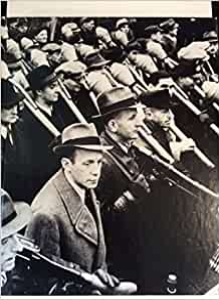Not all Americans supported the war. A small number refused to fight because of religious or moral beliefs. They were known as conscientious objectors. And some Americans supported Adolf Hitler and other fascists. But almost everyone else wanted to win the war quickly and return to a normal life. Many Japanese-Americans served with honor in the United States armed forces. But many Americans were suspicious of anyone whose family had come from Japan. They refused to trust even Japanese-American families who had lived in the United States for more than a century. Many banks refused to lend money to Japanese-Americans. Many stores would not sell to them.
The federal government relocated thousands of Japanese-Americans in California and other states into internment camps. They were released only after the war ended. It was many years before the government officially apologized for mistreating Japanese-Americans. But World War Two did lead to progress for another group that was often the target of discrimination: black Americans. Black leaders spoke out. They said it was unfair to fight a war for freedom in Europe while black Americans did not have all the same freedoms as white citizens. "Negros want the same things that white citizens possess – all their rights, and no force under the sun can stem and block and stop this civil rights revolution which is now underway."

In nineteen forty-one, a leader in the black community, A. Philip Randolph, threatened to lead a giant march on Washington for civil rights for blacks. President Roosevelt reacted by issuing an order that made it a crime to deny blacks a chance for jobs in defense industries. He also ordered the armed forces to change some of their rules that discriminated against black service members. Blacks made progress in the military and defense industries. But most other industries still refused to give them an equal chance. Major progress on civil rights would not come until the nineteen fifties and sixties. Life was busy during the war years. There were many changes in the economy, business, music, race relations and other areas. But in many ways, life continued as it always does. Americans did what they could during the hard years of World War Two to keep life on the home front as normal as possible. But almost everyone understood that the first job was to support the troops overseas and win the war. This strength of purpose at home gave American soldiers the support they needed. And it also helped President Roosevelt as he negotiated with other world leaders. Diplomacy and foreign relations became much more complex during the war. That will be our story next week.












